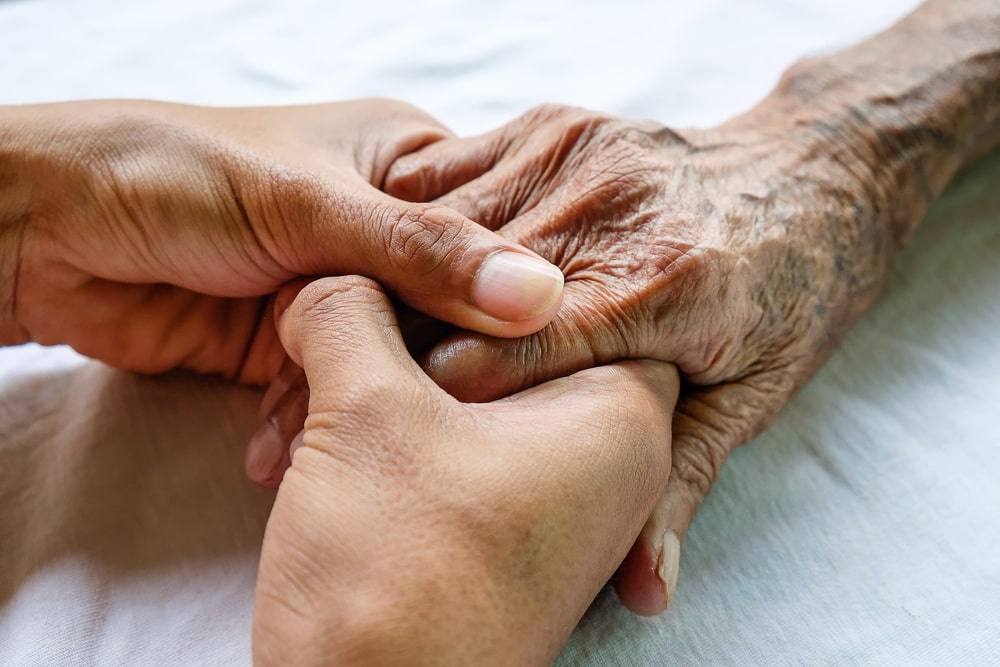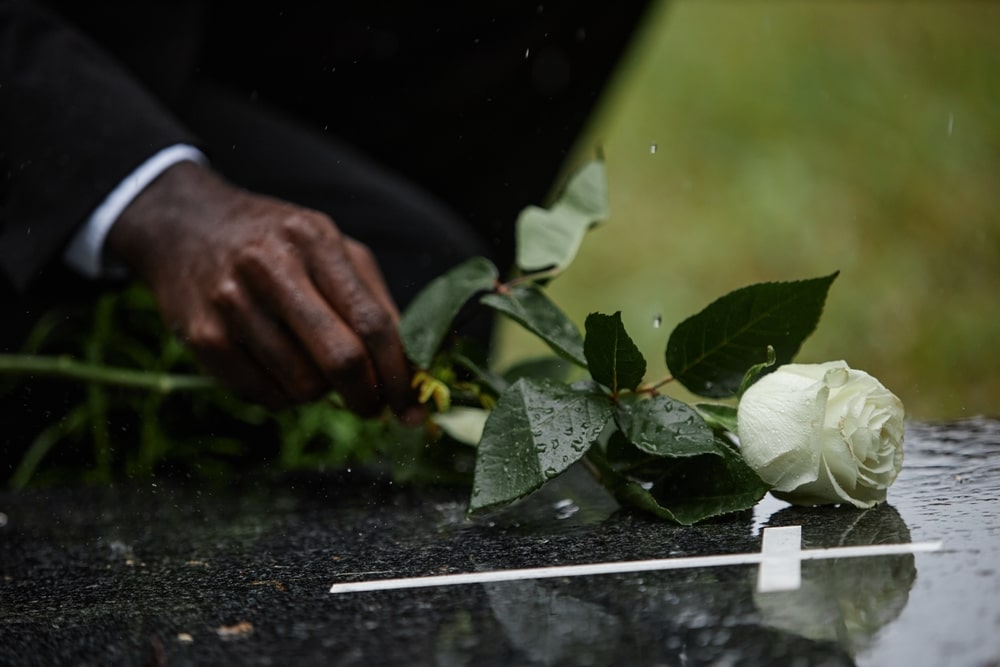For many of us, we deal with death so infrequently that we aren’t sure what to do when we lose a family member or close friend. The first 24 hours following a loss can be very difficult. You might feel a wide range of emotions: shock, sadness, anger, or even relief. All of these are normal reactions to loss, but the first question you may ask yourself is, “What do I do now?” To answer this question, this article shares what you should do in the first 24 hours following a death. While you will still feel the pain of grief, knowing what actions to take will make things just a little bit easier.
0-1 Hours After Death: Report the Death
1. If a death occurs at home:
- Death under hospice care: If your loved one has endured a prolonged illness at home under hospice care, contact their primary medical professional, who will follow all proper procedures, including making a legal pronouncement of death. Hospice professionals may also advise you in this circumstance.
- Sudden, unexpected death: For an unexpected or unattended death, call 911 to notify the police and emergency medical personnel, who will attempt resuscitation, if they are authorized to do so (note: if your loved one has signed a Do Not Resuscitate (DNR) document or is wearing a “DNR” or “Comfort Care Only” bracelet, medical personnel will not attempt resuscitation). The body of your loved one may need to be moved to the hospital where a doctor can make a legal pronouncement of death.
- Arrangements for organ donation: If your loved one’s driver’s license or advance healthcare directive gives authorization for organ donation, immediately inform the medical staff so that they can determine if organ or tissue donation is a viable option.
2. If a death occurs in a nursing home, assisted living facility, or hospital:
- Alert the staff, nurse, or physician if you are the first to be aware of the death. Calling 911 is not necessary if the person is under hospice, nursing home, or hospital care.
3. If a death takes place away from home:
- If your deceased loved one is away from home and you are notified of the death, you may need to travel to where your loved one is. Speak to the local authorities or medical professionals to determine what actions are needed.
- If you have purchased a travel protection plan, like the ones available through American Pre-Arrangement Services, Inc. (APASI), make sure to contact the company immediately. In the case of APASI, if a death occurs 75+ miles away from home, they will pay for all transportation costs to have the body returned home. APASI does not offer expense refunds, so if you have this type of plan, always contact them first to ensure you receive the full benefits of the service.
4. If a death occurs out of country:
- Contact the U.S. Embassy or call 1-888-407-4747 for the Office of Overseas Citizen Services in the State Department’s Bureau of Consular Affairs.
1-4 Hours After Death: Who to Contact
1. Contact loved ones.
Contact immediate family members and ask them to contact others. After making direct contact by telephone with your loved one’s closest family members, you can begin telling friends and extended members of your network. Try to make sure that immediate family members do not learn of the death through social media or acquaintances.
2. Choose a funeral director or service provider.
Hopefully, your loved one planned for their funeral by completing a prearranged funeral plan with a local funeral provider. If not, talk to a trusted friend, relative, or faith-based support person for help locating a well-recommended funeral home. A local funeral director will know the state and municipal laws that apply to the circumstances and death of your loved one and will help you through the planning process.
3. Contact clergy, a minister, or a spiritual advisor.
If your loved one was active in a faith-based community or held religious or spiritual values, contact the leader of that community to notify them of the death. This is an important time to honor the spiritual or religious values of your loved one.
4. Contact other key support people.
Managing the details surrounding the death of a loved one can be physically and emotionally exhausting. Reach out to your support network for help – don’t be afraid to ask. Consider choosing a few close friends or family members to help you make funeral preparations. Ask a trusted friend to field calls, help run errands, care for children, and to act as your advocate. Be sure to give yourself the care you need to get through the challenging process of losing and grieving for a friend or loved one.
4-12 Hours After Death: Prepare for Funeral Arrangement Conference
1. Locate important documents.
If your loved one made advance plans for funeral arrangements, locate any insurance policies, prepaid funeral contracts, or written plans. Your loved one may have also left instructions in a will or estate plan, which families often discover after the funeral has taken place, so you may want to look for any legal documents your loved one completed. If you are unfamiliar with your loved one’s wishes for funeral arrangements, speak to your family members to determine which options resonate with them.
2. Gather vital statistics:
- Full legal name of the deceased
- Marital status, including marriage certificate, if available
- Parents’ full names, including mother’s maiden name
- Children’s full names
- Immediate family member names
- Family members who have predeceased your loved one
- Place of birth
- Date of birth
- Employment history
- Education
- Social Security Number
- Veteran’s discharge papers (DD-214)
12-24+ Hours After Death: Rest and Prepare
1. Rest and nourish yourself.
Try to sleep as much as you can to help prepare for the events to come.
The next several days will be filled with activity, plans, phone calls, visitors, and emotion. Even short naps will help you manage the details, events, and sentiments that follow the death of a friend or a loved one. Remember proper nutrition, even if it may seem challenging. Taking time to care for yourself is as important as the final planning for your loved one.
2. Gather meaningful remembrances of your loved one.
Gather items that you might be able to incorporate into a meaningful tribute for your loved one. These may include photos, videos, articles of clothing or jewelry, and prized possessions that were an integral part of your loved one’s life. Select items that are genuine reflections of your loved one so that you can create a personal and meaningful funeral. This step can also be an important part of the grieving process.
3. Determine how the funeral will be paid for.
Funeral and cemetery or crematory charges will typically need to be paid for before the services are performed. If the service is not paid for in advance with a prepaid funeral contract, consider alternate ways to address costs:
- Cash, personal check, or money order
- Life insurance policy – since it could take 6 to 8 weeks for the insurance company to process your claim, your funeral director can help you assign the benefits to the funeral home to cover the funeral expenses
- Veterans’ burial benefits – again, your funeral director can assist you in determining if your loved one is eligible for any veterans’ benefits that may help you save money
- Personal credit card
- Loan from a lending institution
- Establish a memorial fund to which friends and extended family members can donate
4. Allow yourself to grieve. You may experience moments of intense grief throughout the day.
Some people are afraid that if they start to cry, they may not be able to stop, but this is simply not the case. Usually people cry in bursts of 5-10 minutes, which helps relieve tension and gives expression to deep emotions. It is important to give yourself this time to process your grief and release some of the emotions you are feeling. Accept your feelings and allow them to come without judgment. Surround yourself with people who will not minimize or try to stifle your emotions and who will comfort you and accept you as you are.








